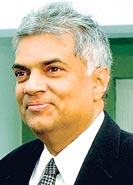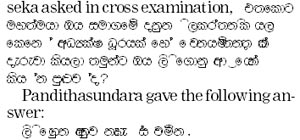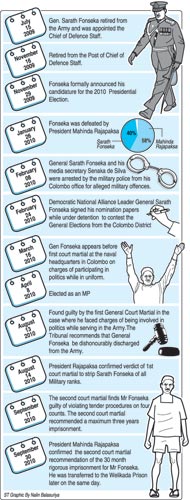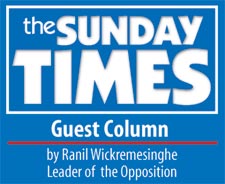All Parliaments have full control over public finance. Originally starting as a convention in governance this principle was finally embodied into the respective Constitutions of all nations.
In Sri Lanka, it was first enshrined in the 1947 Soulbury Constitution; then in the first Republican Constitution of 1972 and the second Republican Constitution of 1978. Article 148 of the 1978 Constitution states that Parliament ‘shall have full control over public finance’. The Constitution also makes provision for the funds of the Republic to form one consolidated fund.
Any withdrawals from the consolidated fund have to be under the authority of a warrant under the hand of the Minister of Finance. No such warrants shall be issued unless that sum has been authorized by a resolution of Parliament or by a law for specified public services for the financial year during which the withdrawal is to take place (Article 150 of the Constitution).Therefore, Parliament has full control of public funds and all state agencies are responsible to Parliament for incomes received and expenditures incurred from public finances.
Article 154 of the Constitution defines the Duties and Functions of the Auditor General as auditing the accounts of departments of government, local authorities, public corporations, the Parliament, the judiciary etc..
The Auditor General is required to report to Parliament from time to time on the performance and the discharge of his duties and functions. These reports are tabled before the Public Accounts Committee and the Committee on Public Enterprises. Through these Committees Parliament has the power to examine the accounts and expenditure of all state agencies.
In any government, the Cabinet of Ministers is vested with the power to direct and control that government; they are also entrusted with the power to prepare regulations and guidelines relating to public finance including tender procedures under Article 43 (1) of the Constitution. Thus the Cabinet is also responsible for the implementation of guidelines and regulations on public finance. And under the norms of democracy, the Cabinet of Ministers is collectively responsible and answerable to Parliament on these matters given that Parliament controls public finance in the final count (Article 43 (1) of the Constitution).
In this play of checks and balances in governance, the Auditor General, in auditing the accounts of state agencies, must take into consideration the Financial Regulations and guidelines laid down by the Cabinet. Therefore, today, public funds granted for specified services must be utilized in accordance with the tender procedures. The Cabinet of Ministers can inquire into any violation / non-conformity of tender guidelines. If any harm or loss is caused to the State by violation or non-compliance of guidelines the Cabinet has the option of setting aside the tender.
In the financial year 2006, the Sri Lankan Parliament voted Rs. 41.9 billion, and in the year 2007 Parliament voted Rs. 53.6 billion with respect to the projected costs of the Sri Lanka Army through the Appropriation Acts. The monies allocated by the Appropriation Acts to obtain goods and services for the Army were controlled by Parliament and the monies so allocated to the Army by the Appropriation Acts were utilized according to the relevant Financial Regulations and guidelines. While all goods and purchases for the Army utilized by public funds belong to the Army, the control over the public funds allocated to the Army lies with the Parliament.
The investigation into Hicorp Private Limited relates to the non-conformity of tender procedures in disbursing such funds. However, an Army Court Martial does not have the authority to impose penalties in respect to the utilization of public funds since the control of public finance lies with Parliament. The Second Army Court Martial of Gen. Sarath Fonseka had absolutely no authority to take it upon itself to enforce the powers of Parliament in respect to public finance. The Army Court Martial has unquestionably transgressed on the powers of Parliament on this matter. As far as the powers of the Army Court Martial are concerned it can only enforce the military law contained in the Army Act. If any violation of tender procedures has taken place, it is the duty of the Army Court Martial to inform Parliament and order a complaint be made to the Police.
Gen. Sarath Fonseka was brought before the Second Court Martial for violating Section 109 (e) of the Army Act. Section 109 (e) of the Army Act refers to the committing of “any other fraudulent act hereinbefore not particularly specified, or any act of a cruel, indecent or unnatural kind”.
The 4 charges contained in the Charge Sheet against Gen. Fonseka are as follows:
Charge Sheet 1:
(1) While being a regular Officer of the SLA and Chairman of the Tender Board for the procurement of 234 Nos. Day-vision Binoculars awarded the tender to the British Borneo Defence – Australia through Messrs. Hicorp Private Limited in the knowledge that his son-in-law Danuna Tilakaratne had an interest with Messrs. Hicorp Private Limited.
(2) While being a regular Officer of the SLA and Chairman of the Tender Board for the procurement of 50 Nos. 12V Maintenance Free Batteries awarded the tender to the British Borneo Defence – Australia through Messrs. Hicorp Private Limited in the knowledge that his son-in-law Danuna Tilakaratne had an interest with Messrs. Hicorp Private Limited.
Charge Sheet 2 :
(1) While being a regular Officer of the SLA and Chairman of the Tender Board for the procurement of 50 Nos. 5KVA Generators awarded the tender to the British Borneo Defence – Australia through Messrs. Hicorp Private Limited in the knowledge that his son-in-law Danuna Tilakaratne had an interest with Messrs. Hicorp Private Limited.
(2) While being a regular Officer of the SLA and Chairman of the Tender Board for the procurement of 03 Nos. VHF Direction Finders awarded the tender to the British Borneo Defence – Australia through Messrs. Hicorp Private Limited in the knowledge that his son-in-law Danuna Tilakaratne had an interest with Messrs. Hicorp Private Limited.
Given the purview of the relevant section, it is fairly obvious that these charges do not come within Section 109 (e) of the Army Act. In fact, let’s be completely clear here - these charges do not contain any allegations of fraudulent acts by Gen. Sarath Fonseka. To be precise, he is charged with violating the procurement guidelines of 2006 issued by the Cabinet of Ministers; in being the Chairman of the Tender Board he did not inform the Board members that his son-in-law Danuna Tilakaratne had an interest with Messrs Hicorp Private Limited. This is then without a doubt, a matter for Parliament, the Cabinet of Ministers responsible to Parliament and the Commission to Investigate Allegations of Bribery and Corruption. The charges do not fall under Section 109 of the Army Act because the charge does not relate to military law.
Technically-speaking, the Commander of the Army is also the Head of the Department of the Army. General Fonseka then was both the commanding officer of the Army and the administrative head in respect of financial matters; as such it is only the Public Accounts Committee (PAC) that could have questioned Gen. Fonseka regarding this matter. Moreover, there have been several instances when Army Commanders have been summoned before the PAC in the past.
In trying General Fonseka the Court Martial has overstepped its jurisdiction, usurped the powers of Parliament and is in breach of the Privileges of Parliament Act. Under the Financial Regulations in place, the chain of responsibility is as follows. The Head of a Department reports to the Secretary to the Ministry who is the Chief Accounting Officer. The overall responsibility lies with the Secretary to the Ministry of Defence who is wholly responsible to Parliament. This is why a Secretary is summoned before the Public Accounts Committee to answer queries raised by the Auditor General’s report or any other question.
 |
Though the Sri Lanka Army Commander has a dual responsibility it is limited, in this instance. One, as the Commander of the Army, he is responsible for the implementation of the Army Act which relate to military matters. Two, as the Head of Department he is answerable to his immediate superior – the Secretary to the Ministry of Defence who is the chief accounting officer and through the Secretary to Parliament on the implementation of the Financial Regulations and guidelines.
The Army Act does not contain any provision to take action against a Head of Department in relation to Financial Regulations. However, if there is any violation of the financial guidelines, Parliament has the power to inquire into this matter. In such instances, the Secretary to the Ministry of Defence or the Army Commander will be summoned before the Public Accounts Committee. There have been several instances when Sri Lankan Army Commanders have been summoned before the Public Accounts Committee. Therefore, to reiterate, the Army Court Martial has violated the powers of Parliament in court-martialing Gen. Sarath Fonseka.
Furthermore, Article 13(6) of the Constitution states “No person shall be held guilty of an offence on account of any act or omission which did not, at the time of such act or omission, constitute such an offence and no penalty shall be imposed for any offence more severe than the penalty in force at the time such offence was committed.” In other words, a person cannot be found guilty of an offence if that act or omission has not been legally classified as a crime at the time when that act or omission occurred. Gen. Fonseka has been charged with violating the procurement guidelines of 2006.
A guideline is any document that aims to streamline a particular process according to a set routine. However, there is no legal requirement to follow these guidelines. There is no doubt that Gen. Fonseka had a duty to inform the Tender Board if Danuna Tilakaratne, his son-in-law, had an interest with Messrs. Hicorp Private Limited. But the omission to do so in such an instance is not ‘a fraudulent act’. A fraudulent act is defined as an act against the law; it is a crime or an illegal activity for which there is a mandatory punishment. As stated before, guidelines are not laws; therefore they are not binding. Furthermore, only Parliament has the power to fashion laws; which it does through specific statutes. The National Procurement Agency which has laid down these guidelines does not have legislative powers (either primary or subordinate) to create legislation.
To reiterate, following a guideline is never mandatory. The violation of guidelines is not a violation of any law and therefore cannot result in anyone being sentenced to imprisonment. Therefore to impose a jail sentence of three years is a violation of Article 13 of the Constitution. Furthermore, no evidence was led before the Court Martial that Danuna Tilakaratne had an interest in Hicorp Private Limited. When the Registrar of Companies (Pandithasundarage Don Tharanga Pandithasundara) was called before the Second Court Martial he denied that Danuna Tilakaratne had any interest in Hicorp Private Limited. Rienzie Aresacularatne, the Counsel for Gen. Sarath Fonseka asked in cross examination,
 |
The above quotation makes it apparent that the evidence led in the Second Court Martial established that Gen. Sarath Fonseka had no direct or indirect interest in Hicorp Private Ltd. In such a situation, how can there have been an omission on the part of Gen. Sarath Fonseka to inform the Tender Board that his son-in-law had an interest in Hicorp Private Limited?
The verdict of the Second Court Martial is a gross abomination of justice and democracy in addition to violating the rights of Parliament and of a person’s fundamental right as articulated in Article 9 of the International Convention on Civil and Political Rights (ICCPR). In the ICCPR Article 9 explicitly states “Everyone has the right to liberty and security of person. No one shall be subjected to arbitrary arrest or detention. No one shall be deprived of his liberty except on such grounds and in accordance with such procedures as are established by law.”
The freedom of Gen. Fonseka has been curtailed not because he committed an offence or act of omission of any procedure established by law. Given the evidence at the Court Martial it is obvious that confining him in jail is an arbitrary act based on sinister political motives. Aside from this, the Commander of the Army and the members of Court Martial Major General M.P. Peiris, Major General, M. Hathurusinghe and Major General S.W.L. Davulagala have by force prevented a Member of Parliament from attending sessions of Parliament. They have through their verdict deprived a Member of Parliament of his rights and privileges by force.
 |
The provisions of the Parliamentary Powers and Privileges Act coming down from British Law ensures and guarantees that a Member of Parliament has free and unhindered access to Parliament because a Member of Parliament is the representative of the people and the people’s representation in Parliament (and the overall constituent representation in Parliament) cannot be interfered with by anyone – not the King nor any other authority. The Act categorically prohibits the arrest or molestation of a Member proceeding to or in attending or returning from any meeting or sitting of Parliament.
In Sri Lanka this Act has conferred this right to all Members of Parliament and no one has the right to violate these privileges and rights of a Member of Parliament. It is also a violation of Article 4 of the Constitution. Thus, anyone who confirms the verdict of the Court Martial (under Section 63 of the Army Act) whether it is the President, a Minister or any other person, that person is violating Article 4 of the Constitution.
There are also very serious doubts as to whether Sarath Fonseka could have been tried before a Second Court Martial. This is for the simplest reason that the first Court Martial that tried Retired Geneal Fonseka cashiered him, denied his rank, denied his pension and withdrew all his medals. The denial of his pension was in terms Section 134(i) of the Army Act by “forfeiting his service towards a pension” – in effect declaring that he never served in the Army. If that be so how was the man who never served in the Army tried under the Army Act? If he did not serve in the Army how can he then be subject to Military Law? Should not the Second Court Martial that tried him have taken into account the proceedings and verdict of the earlier Court Martial established under the very same Army Act? If, on the other hand, the second Court Martial chose to ignore the findings of the earlier Court Martial, why should anyone else (including the Pensions Department) take notice of it?
The verdict of the Second Court Martial violates the Constitution, the Parliamentary Powers and Privileges Act, the International Covenant on Civil and Political Rights, and even the verdict of the first Court Martial. When the thirty-year conflict was brought to an end President Mahinda Rajapaksa proclaimed that Gen. Sarath Fonseka was the best Army Commander in the world. One and half years after this statement, the best Commander in the world has been deprived of his rank, his pension, his medals and is being illegally confined to jail. This has been done not according to the law but contrary to all laws in the Constitution – for reasons of political malice and personal opportunism.
Democracy and the rule of law are being ignored with absolute impunity and Members of Parliament are under threat. For many years, we have, as Sri Lankans, faced grave challenges to democracy in this country from terrorism. Members of this House have sacrificed their lives to safeguard democracy. Today, however, we face a new phenomenon in the form of extra-legal terrorism. The powers of Parliament are being depleted by extra-legal structures masquerading as judicial bodies – working outside the law of the country.
The privileges of Parliament have also been violated by the Executive acting arbitrarily outside the law. The individual rights of Members have been completely ignored by the Executive continuing to act outside the law. Nonetheless, let me state unequivocally that we will face whatever threats we have to face - it is our duty as Members of Parliament to protect democracy.
At this juncture one cannot help but bring to mind one of the first historical clashes between the Legislature and the Executive – that of King Charles I and his encounter with the British Parliament in 1642 where he sought to arrest five Members of Parliament and the Speaker of Parliament. Speaker Lenthall’s response when the King asked him to name the five Members was:
“ May it please Your Majesty, I have neither eyes to see nor tongue to speak in this place but as the House is pleased to direct me, whose servant I am here ”
Today, Lenthall’s legacy has been passed to the Speaker of this House and the Speaker as the custodian of the rights of this House and its Members must take such steps that are necessary to protect the Member of Parliament Gen. Sarath Fonseka. The Speaker has only one duty and that is to safeguard the rights of Parliament and its Members. He has no obligation to safeguard the President, the Government, public officers or political parties. He has to follow the convention established by Speaker Lenthall when he stood up to the King. Speaker Anura Bandaranaike followed this precedent when he upheld the rights of Parliament against his sister the President, quoting from Shakespeare’s Hamlet;
“This above all; to thine own self be true,
And it must follow, as the night the day,
Thou canst not then be false to any man.”
|





